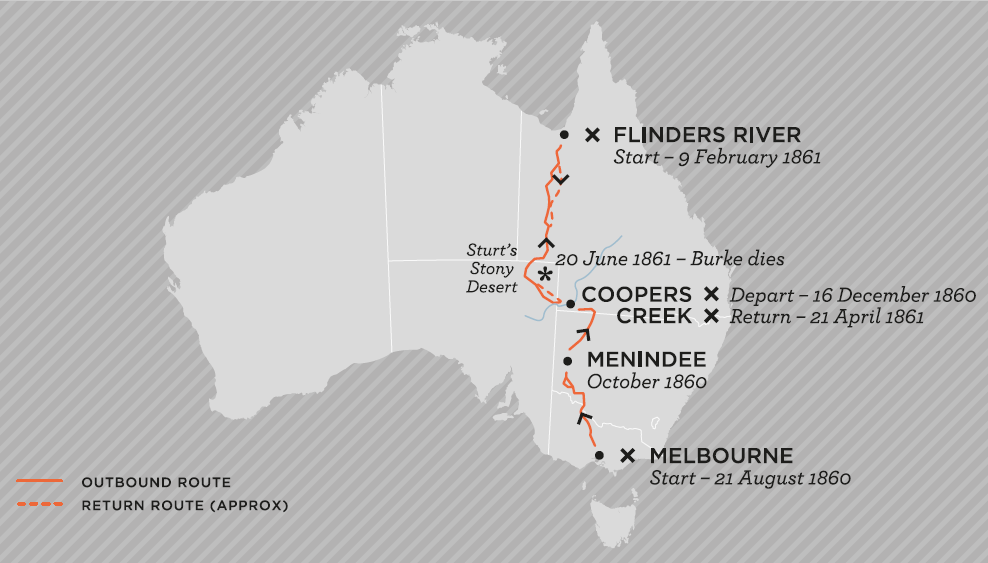Robert O’Hara Burke and William Wills
On this page...
Readers note: This is an excerpt from the Trailblazers: Australia’s 50 Greatest Explorers exhibition, developed in 2015. This content was written as a brief biography on why this person was included in the exhibition.
Forever strung together as one, bonded in death, Robert O’Hara Burke and William Wills are two of Australia’s most famous, and tragic, explorers. The first to successfully cross the continent from south to north, they died beside Cooper Creek in south-west Queensland on the return journey.
Burke was born in Ireland in 1821, and Wills in England 13 years later. They both happened to arrive in Australia in 1853, Burke becoming a police officer in Victoria, and Wills – who showed a love of learning – a surveyor and astronomer. Burke was by nature a risk-taker, and while rising rapidly through the ranks of the police force, began to look for something more. When the Royal Society of Victoria began organising its 1860 expedition to cross the continent from south to north, Burke worked hard to ensure he was appointed leader. He made 27-year-old Wills expedition surveyor and third in command.

© National Gallery of Victoria, Melbourne
The lavishly equipped expedition – the most expensive ever mounted in Australia’s history – included two dozen camels, two years of rations and six tonnes of firewood. The party’s second-in-command was dismissed after an altercation and Wills became deputy.
Burke wanted to travel lightly and swiftly, so after reaching Cooper Creek, made a dash the rest of the way north with Wills, John King and Charles Gray, taking six camels, one horse and three months’ provisions. They reached the Gulf of Carpentaria successfully, but a combination of short provisions, illness through scurvy, wild weather and hostile Aboriginals resulted in Gray’s death. The trio stumbled back to the main camp on Coopers Creek to find the rest of the party had left for Melbourne that morning.
Both Wills and Burke died two months later within a few hundred metres of each other. King managed to stay alive for another month, helped by Aboriginals, before a search party found him.
Many memorials have been erected throughout Victoria to the Burke and Wills expedition, and small memorials can be found at their death sites near Innamincka, South Australia. Burketown, near the Gulf of Carpentaria, is named after Burke, as is the mainly dry Burke River in central western Queensland.

A map of the ill-fated journey taken by Robert O’Hara Burke, William Wills and their team.
Image: n/a© Australian Museum


